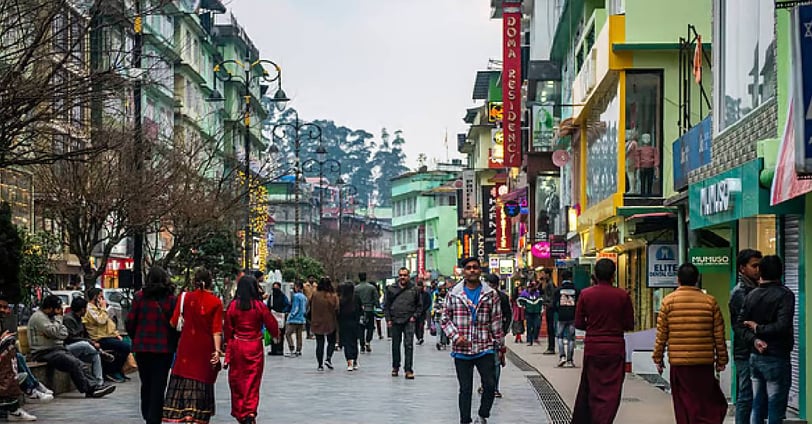Sikkim introduces Rs. 50 tourist entry fee to state, opposition demands rollback
Despite the backlash, the Sikkim government has defended its decision saying that the Tourism Sustainable Development Fund is essential for long-term growth.
LOCAL


The Sikkim government has introduced a new tourism policy, which includes a mandatory entry fee of Rs. 50 for all tourists visiting the state. The fee, which has been implemented as part of the Tourism Sustainable Development Fund (TSD Fund), aims to support the development of tourism infrastructure, cultural preservation, and capacity-building initiatives. However, the opposition Citizen Action Party (CAP) has strongly criticized the move and demanded its rollback.
As per the new policy, the Rs. 50 fee will be collected at the time of booking accommodation in hotels, homestays, or any registered lodging facility in Sikkim. The government has clarified that the revenue generated from this initiative will be used for infrastructure development, maintenance of tourist facilities, and training programs for tourism stakeholders and local youth.
According to officials, the fee will be levied on both domestic and international tourists. The collected amount will be deposited into a government account every Monday, and strict audit mechanisms will be put in place to ensure transparency. Exemptions have been granted to children below five years, government employees on duty, and local residents upon producing valid identity proof.
To facilitate smooth transactions, the government has integrated an online payment system through a software platform called "ATITHI-Guest Information System, Sikkim." Tourists booking accommodations online will be required to pay the fee as part of their reservation, while those opting for offline bookings will be required to pay at check-in. Upon payment, tourists will receive a digital memento certificate as a token of appreciation for their visit.
The introduction of the tourist entry fee has sparked strong opposition from CAP Sikkim, which argues that the move will negatively impact the tourism sector. CAP spokesperson Mahesh Rai, in a press conference, criticized the decision, stating that Sikkim is the first Indian state to impose such a charge on domestic tourists. He compared the move to Bhutan’s Sustainable Development Fund, where only foreign tourists are required to pay an entry fee, whereas in Sikkim, even Indian tourists are being charged.
“It is unfair to charge Indian citizens to enter a part of their own country. This fee, along with other existing taxes on tourists, will discourage visitors. Sikkim already has multiple fees, including Restricted Area Permit (RAP) and Protected Area Permit (PAP) fees for regions like North Sikkim, Nathula, and the Silk Route. In addition, there are entry charges for various tourist spots and wildlife sanctuaries, parking fees, and other service charges,” said Rai.
The tourism industry, which is still recovering from the impact of the COVID-19 pandemic, has also raised concerns about the new fee. Many hoteliers and tourism stakeholders believe that the additional charge might drive tourists to alternative destinations with fewer restrictions and lower costs.
Moreover, CAP has pointed out the lack of basic infrastructure in the state. According to them, many highways and tourist spots in Sikkim still lack proper road connectivity, drinking water facilities, and sanitation services. The opposition also highlighted transportation issues, including restrictions and permit requirements for traveling between Sikkim and Siliguri, West Bengal. They alleged that transport operators often have to resort to unofficial payments to facilitate smooth travel, adding to the cost burden on tourists and tourism businesses.
Despite the backlash, the Sikkim government has defended its decision saying that the Tourism Sustainable Development Fund is essential for long-term growth. Officials argue that the revenue will help enhance tourist experiences by improving infrastructure and preserving Sikkim’s rich cultural heritage.
The government has also assured that proper audit and monitoring mechanisms will be in place to ensure that the funds are utilized effectively. Tourism operators failing to comply with the fee collection and deposit regulations will face penalties, starting from fines of Rs. 5,000 for the first month of non-compliance, Rs. 10,000 for the second month, and eventual de-registration if the violation continues for three consecutive months.
